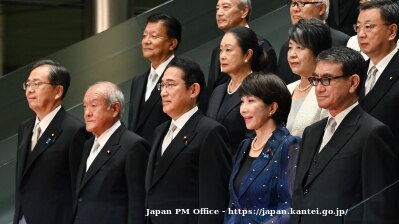As the violence in Gaza drags on, calls for global solidarity grow louder. Yet for East Asia - encompassing Japan, South Korea, China, Taiwan and the Philippines - the case for direct involvement is far from compelling.
The region has neither the strategic interest nor the domestic appetite to be drawn into a conflict whose roots lie far from its shores.
For many in East Asia, the origins of the current crisis are clear. The October 7, 2023 assault by Hamas on Israel, including the massacre of hundreds of Israelis at a music festival and abduction of many more, is seen not simply as a tragic prelude to war, but as the central act that triggered the scale of retaliation now devastating Gaza. While humanitarian concern is genuine, there is also a widespread view that Hamas knowingly placed the people of Gaza in peril by initiating an attack certain to provoke overwhelming Israeli force.
As many in the region have said over the almost two-years since the initial terrorist attack, Hamas started this, and it is now getting its just desserts. By hiding behind the innocent people of Gaza shows their lack of regard for the people they supposedly govern.
This perception shapes policy attitudes. Governments and populations alike in East Asia tend to weigh foreign crises through the lens of direct interest, historical ties and economic impact. As such, the Israel–Gaza conflict does not rank high on any of those counts.
East Asia’s diplomatic and economic energy is overwhelmingly focused on managing its own tense flashpoints - from the Taiwan Strait to the Korean Peninsula and the South China Sea. These disputes are immediate, potentially existential, and demand full attention from regional policymakers – oftentimes on a daily basis.
Japan as a leading economy both in East Asia and globally, is contending with heightened military activity from China and North Korea. South Korea must balance deterrence against Pyongyang’s own threats coupled to complex relations with Beijing and Washington. Taiwan meanwhile lives under constant threat of Chinese military coercion, while the Philippines is embroiled in a tense maritime stand-off with China over contested reefs and shoals.
For all these states, every diplomatic calorie spent abroad is one less available to reinforce regional stability on the home-front.
There is also the matter of political capital. None of these governments can afford to alienate domestic constituencies by embroiling themselves in a conflict viewed by many as having been sparked by Hamas’s own brutality with the repercussions in some way a form of justice.
Public opinion in much of East Asia is pragmatic to the point of bluntness: empathy for civilian suffering exists, but so does a conviction that initiating an attack on civilians carries moral and strategic consequences. That sentiment does not translate into enthusiasm for military or even heavy diplomatic engagement in the Middle East – by Hamas or any other perpetrator of attacks on civilians.
China presents a different, though still cautious, case, however. While Beijing has positioned itself as a potential mediator in Middle Eastern disputes, it has done so with the long game in mind – as always: securing energy supplies, expanding influence, and projecting itself as an alternative to Western diplomacy. Direct entanglement in Gaza’s war risks undermining China’s cultivated neutrality with both Israel and the Arab states. For Beijing, symbolic gestures and carefully balanced statements serve its interests better than substantive intervention on either side.
Similarly, Japan’s constitutionally constrained military role and public aversion to foreign combat involvement make any suggestion of taking sides politically untenable. Tokyo’s contributions are more likely to be limited to humanitarian aid as a low-risk, high-goodwill form of engagement.
South Korea as another major economic player on the global stage may also provide assistance via international agencies, but its interest in serious involvement is already consumed by the volatile situation on the Korean Peninsula.
The Philippines faces its own pressing maritime security challenges and commitments to a distant war would only dilute its ability to defend its territorial claims in the South China Sea.
Taiwan meanwhile cannot afford any diversion from the singular task of ensuring its survival in the face of potential Chinese aggression.
For all five, neutrality is not a matter of callousness but of discipline. The Middle East has a long history of drawing in outside powers, often at great cost and with little gain. East Asia’s leaders understand that once entangled, extricating themselves could be politically and economically costly.
In the end, while global sympathy for the civilians of Gaza is widespread, in East Asia too, sympathy does not necessitate involvement, especially when the current devastation is viewed as inseparable from the decisions to massacre Israelis enjoying a music festival made by Hamas in October 2023.



